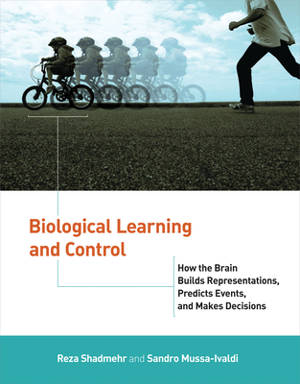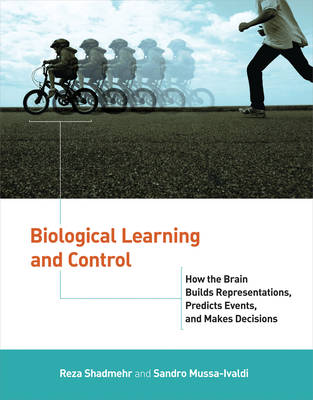
- Retrait gratuit dans votre magasin Club
- 7.000.000 titres dans notre catalogue
- Payer en toute sécurité
- Toujours un magasin près de chez vous
- Retrait gratuit dans votre magasin Club
- 7.000.0000 titres dans notre catalogue
- Payer en toute sécurité
- Toujours un magasin près de chez vous
Biological Learning and Control
How the Brain Builds Representations, Predicts Events, and Makes Decisions
Reza Shadmehr, Sandro Mussa-IvaldiDescription
In Biological Learning and Control, Reza Shadmehr and Sandro Mussa-Ivaldi present a theoretical framework for understanding the regularity of the brain's perceptions, its reactions to sensory stimuli, and its control of movements. They offer an account of perception as the combination of prediction and observation: the brain builds internal models that describe what should happen and then combines this prediction with reports from the sensory system to form a belief.
Considering the brain's control of movements, and variations despite biomechanical similarities among old and young, healthy and unhealthy, and humans and other animals, Shadmehr and Mussa-Ivaldi review evidence suggesting that motor commands reflect an economic decision made by our brain weighing reward and effort. This evidence also suggests that the brain prefers to receive a reward sooner than later, devaluing or discounting reward with the passage of time; then as the value of the expected reward changes in the brain with the passing of time (because of development, disease, or evolution), the shape of our movements will also change.
The internal models formed by the brain provide the brain with an essential survival skill: the ability to predict based on past observations. The formal concepts presented by Shadmehr and Mussa-Ivaldi offer a way to describe how representations are formed, what structure they have, and how the theoretical concepts can be tested.
Spécifications
Parties prenantes
- Auteur(s) :
- Editeur:
Contenu
- Nombre de pages :
- 400
- Langue:
- Anglais
- Collection :
Caractéristiques
- EAN:
- 9780262016964
- Date de parution :
- 03-02-12
- Format:
- Livre relié
- Format numérique:
- Genaaid
- Dimensions :
- 184 mm x 236 mm
- Poids :
- 785 g

Les avis
Nous publions uniquement les avis qui respectent les conditions requises. Consultez nos conditions pour les avis.






